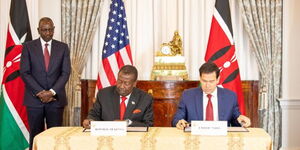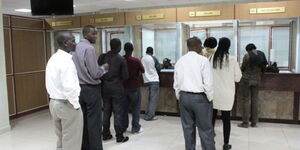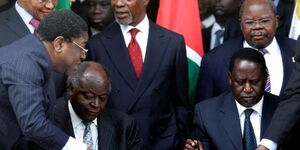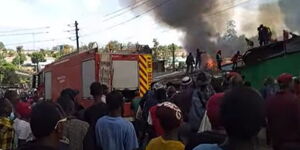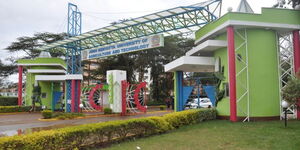The Energy Petroleum Regulatory Authority (EPRA) on Monday, July 3, issued a statement clarifying whether the adjustments of fuel prices for the month of July/August were as a result of an error in computing.
In a statement to newsrooms, the authority attributed the fuel hike which jumped by the biggest margin since Kenya started controlling fuel prices in 2010 on costly crude prices to a number of variables.
"EPRA wishes to clarify that the increase of Ksh11.38 per litre of Super Petrol and KshS17.30per litre of diesel for the period 15th July to 14th August 2020 was to a great extent due to landed costs which had increased by 12.64% for Super Petrol and 32.16% for Diesel (as compared to the previous month)," the authority explained.
According to the energy regulator, the increase by Ksh5 per litre of the petroleum Development Levy for both super petrol and diesel pursuant to the Petroleum Development Levy Order, 2020 (legal notice No.124 dated 10th July 2020) further increased pump prices.
EPRA further stated that on On 14th June 2020, EPRA received confirmation from two Oil Marketing Companies (OMCs) that based on the tax entries received from the Kenya Revenue Authority (KRA), only Excise Duty had been considered as part of the taxable value for Super Petrol, Diesel and Kerosene. The other taxes, duties and levies had been excluded from the taxable value.
Accordingly, and to avoid passing to consumers a cost whose prudence was in doubt, EPRA only included Excise Duty and excluded all other taxes, duties and levies in the computation of the taxable value for the pump prices for the period 15th June to 14th July 2020 pursuant to the Finance Act 2018 and the Tax Laws (Amendment) Act 2020.
This meant that the price of Super Petrol and Diesel was understated by Ksh1.60 per litre while that of Kerosene was understated by Ksh1.55 per litre which upon clarification of the computation of the taxable value by KRA factored the outstanding amount on account of under-recovered VAT in the pump price for the period 15th July to 14th August 2020.
"It is worth noting that delayed compensation is a common occurrence in any regulated price regime until the cost component in question is fully verified," the body assured.
In an interview on Sunday, August 2, Petroleum PS Andrew Kamau stated that EPRA erroneously calculated the latest prices resulting in the surge.
“There was a miscalculation by EPRA when they had not included excise duty in computing the VAT and that had to be corrected in the latest pricing review. This has now been corrected and since it was not the oil marketers’ mistake, there was no way to go back and ask them for what they didn’t collect,” he stated.
However, EPRA director-general Pavel Oimeke maintained that the blame for the error lay squarely on oil marketing companies who misunderstood the taxation law stating that the companies did not adhere to Sections 13 and 14 of the VAT Act, 2013.
The marketers had reportedly included only the excise duty as part of the taxable value rather than all taxes, levies, duties and fees in line with Section 13(3)(c) of the VAT, 2013, and the Tax Laws (Amendment) Act, 2020.

